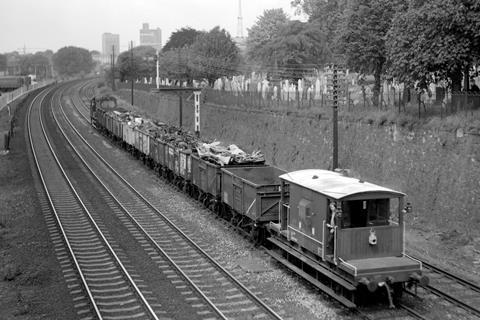
UK: Updates to rail freight operating instructions have seen the final removal of the requirement to provide brake vans in some circumstances.
The provision of a brake van to supply additional braking from the rear of a train was once common, but the increasing adoption of continuous braking saw them fall out of use from the 1950s. The requirement for a brake van to accompany trains fitted with continuous braking was lifted in 1968, with use on the dwindling number of unbraked trains continuing until the early 1980s.
The Rail Safety & Standards Board said brake vans have not been widely used on revenue services for around 30 years, but reference to their required use in some circumstances continued, including in the Working Manual for Rail Staff — Freight Train Operations (known as the ‘White Pages’).
Changes on March 6 led to the White Pages being withdrawn and the instructions moved into the Rule Book, which contains similar rules for other aspects of safety-critical tasks.
RSSB said the opportunity had been taken to make some modifications to more accurately reflect modern operations and remove requirements which are no longer relevant. A Rail Industry Standard offers the opportunity for freight operators to customise requirements and enhance safety management systems without being ‘unnecessarily held back by archaic documents’.
The use of brake vans is still referenced in some documents, acknowledging that they could still potentially be deployed in bespoke operations.
‘Ensuring freight operators have the most up-to-date standards and guidance will enable them to continue to play their critical role in supporting and fuelling the UK economy, and supply goods to businesses and communities nationwide, both efficiently and safely’, said RSSB’s Director of Standards Tom Lee. ‘I’m sure there are many who will remember brake vans both fondly and disdainfully, but their time in the Rule Book has pretty much come to an end, and freight operators can now benefit from enhanced operating instructions that better reflect modern practice.’

